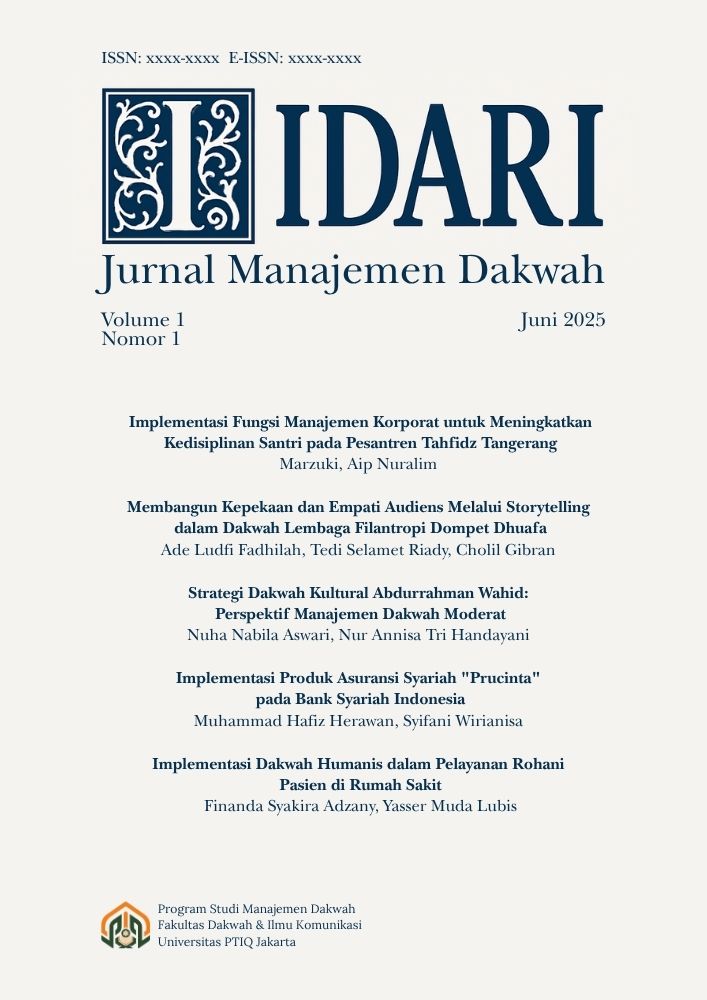Implementasi Fungsi Manajemen Korporat untuk Meningkatkan Kedisiplinan Santri pada Pesantren Tahfidz Tangerang
Keywords:
corporate, management function, discipline, tahfidz, pesantrenAbstract
This study aims to analyze the implementation of corporate management functions (Planning, Organizing, Actuating, Controlling) in improving the discipline of students at the Ahlul Qur'an Tahfidz Boarding School in Tangerang. The study used a qualitative approach with data collection techniques through in-depth interviews with boarding school caretakers such as Ustadz Ahmad Baihaqi, Ustadz Khoirul Afif, and Ustadz Marzuki, participatory observation of student activities, and documentation studies of discipline programs. The results of the study indicate that the implementation of corporate management functions has succeeded in improving student discipline through four main strategies: (1) program planning based on measurable achievement targets including Al-Qur'an memorization standards and group division based on ability (Naqish, Mubtadi', Mutawasith), (2) organizing the coaching structure by involving caretakers and administrators in a 24-hour supervision system, (3) implementation of the tahfidz program that combines Al-Qur'an memorization with fashahah and tajwid coaching, and (4) a supervision system through periodic evaluation and the provision of educational sanctions. The obstacles faced include the lack of consistency of the students' time, the influence of a less than good circle of friends, and the students' different adaptability. The research findings contribute to the development of a modern Islamic boarding school management model that integrates corporate management principles with traditional Islamic boarding school values. This management model can be a reference for other tahfidz Islamic boarding schools in optimizing a more structured and measurable student development system in accordance with the challenges of the contemporary era.

